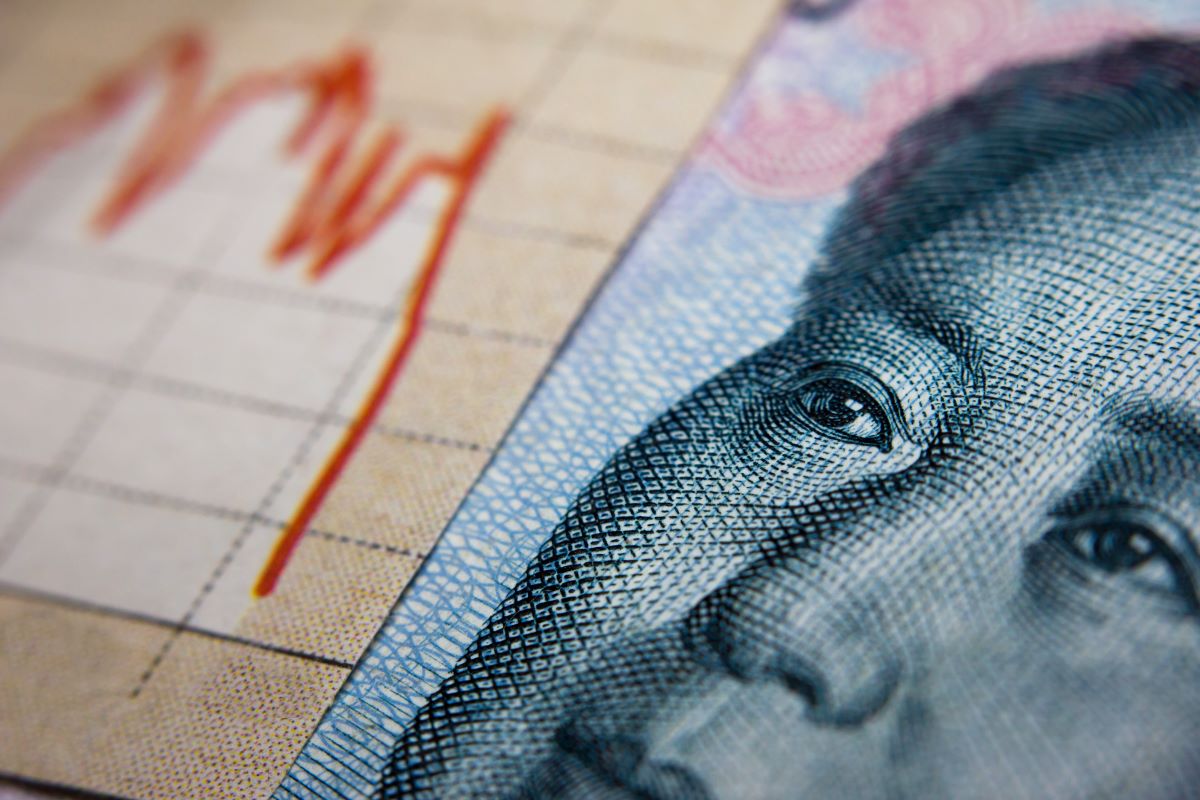Worrisome news from the Chinese economy refuses to abate. With a pressurised property sector and mounting local government debt, a weak yuan comes as another barb for the country.
Evidently, the yuan at a 16-year low is a result of China’s economic slowdown. Moreover, the People’s Bank of China (PBOC) has continued slashing rates while the US Federal Reserve maintained its hawkish stance, creating an widening interest rate gap. This coupled with the geopolitical issues related to Taiwan and Russia has also pressurised the outlook of the Yuan.
Consequently, China has seen massive capital outflows. The latest official figures show a $49 bn capital outflow from China in August 2023, marking the worst since December 2015.
According to the State Administration of Foreign Exchange, $29 bn outflows came from securities investments and also the ownership of Chinese sovereign bonds slipped to a four-year low in August. Also, between January and August 2023, foreign direct investment (FDI) in China dropped 5.1% over the year to 847.17 bn yuan ($116.12 bn).
According to some experts, if the yuan continues to weaken, China will lose its appeal as an economic powerhouse. Global companies could look elsewhere, and the financial markets could get destabilised
However, China’s Ministry of Commerce has a different stance. It chooses to focus on the quality of FDI instead of the quantum. They see the 6.8% rise in manufacturing and the 19.7% FDI surge in advanced-tech manufacturing as a reflection of investors’ long-term belief in China’s prospects and technology endeavours.
Top developers lose over $3 bn due to weak Yuan
To make matters worse, a report in Nikkei Asia highlighted how the weak yuan has already led to foreign exchange losses worth $3 bn and more for China’s top developers. These losses were mainly on their US dollar-denominated borrowings during the first half of the year. As the Chinese currency weakened against the Dollar, developers began to struggle to arrange cash to repay the pile of outstanding debts.
The net forex loss of 4.14 bn yuan for China Evergrande Group represented 12.5% of its 33 bn yuan net loss for the first six months. Out of its total borrowings at the end of June worth 625 bn yuan, 26.3% was denominated in US dollars and Hong Kong dollars.
Meanwhile, Country Garden Holdings reported a net foreign exchange loss of more than 3 bn yuan, contributing 6% to its half-year net loss of 48.93 bn yuan. The developer just managed to avoid a default as it paid interest worth $22.5 mn on the two $500 mn bonds just a few days ahead of its grace period completion, last month.
However, it is noteworthy that several state-owned developers seemed to be less impacted by the yuan depreciation since they are seeking more domestic funding to support their financials while reducing their foreign currency exposure. At the same time, developers with strong ratings are trying to tackle currency fluctuation risks by hedging and gradually reducing borrowings denominated in U.S. and Hong Kong dollars.
Yuan to remain under pressure, say experts
Analysts expect the yuan to remain under pressure but believe that if the depreciation is well-managed, it can benefit the export potential of China.
“We think the PBOC will continue to support the currency – to manage volatility – but will mainly aim to avoid excessive moves which could trigger additional capital outflows,” said Allianz Global Investors.
The PBOC is taking proactive steps to curb the yuan’s further decline. Last week, the central bank announced zero tolerance for excessive market movement of the yuan and issued a warning that authorities would “resolutely deal with behaviour that disrupts market order.”
It also plans to issue more yuan-denominated bills to boost sales in Hong Kong. Selling bills in Hong Kong would sap yuan liquidity out of the market, rendering it costlier to short the yuan.
Furthermore, the PBOC slashed the reserve requirement ratio (RRR) for all banks, except those that have implemented a 5% reserve ratio, by 25 basis points from September 15 to boost liquidity in the economy and support the yuan.










 Australia
Australia China
China India
India Indonesia
Indonesia Japan
Japan Malaysia
Malaysia Philippines
Philippines Singapore
Singapore South Korea
South Korea Taiwan
Taiwan Thailand
Thailand Vietnam
Vietnam
 Germany
Germany Hong Kong
Hong Kong Switzerland
Switzerland Singapore
Singapore
 United Kingdom
United Kingdom








